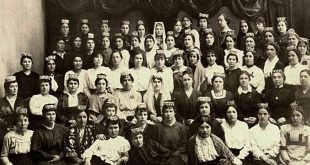Migration and Islamic Ethics, Issues of Residence, Naturalization and Citizenship addresses how Islamic ethical and legal traditions can contribute to current global debates on migration and displacement.
A principle concern of the authors in this collection of papers is how Islamic ethical and legal traditions can contribute to current global debates on the dilemmas of migration and displacement. Can the Muslim tradition provide an alternative international moral and legal paradigm where others have proven inadequate? Abou El Fadl, in this volume, argues that the Muslim tradition is replete with “powerful virtuous ethical impulses that could make substantive contributions to the field of forced migrants and displacement.” The ethics of muʾākhā (brotherhood), ḍiyāfa (hospitality), ijāra (providing protection and support), amān (providing safety), jiwār (neighborliness), sutra (protection, esp. in case of marriage), kafala (to guarantee someone) among others, may provide common ethical grounds with other religious traditions, moral philosophies and social customs that can go beyond the technical applications and procedural standards of international law. The argument that these moral principles or “ethical potentialities and trajectories” are only entitled to fellow Muslims and not applicable to non-Muslims, contradicts the general historical trajectories and normative understanding in Islam. These ethics, according to the authors of this volume, are inclusive and not context-specific. They present “a normative imperative for Muslims that would apply whenever there is an obligation to escape oppression or injustice,” and represent “purposeful construction of social and political virtues” (Abou El Fadl, Chapter One). Unfortunately, post-colonial Muslim scholars have been more occupied with the apologetic discourse of either reinterpreting classical concepts (such as the division of the world into dār al-Islām and dār al-ḥarb) to relate to the political conceptualization of contemporary nation states, or proving an essential compatibility and reconcilability between Islamic theology and international law. The better task is to turn the moral imperatives inherited from the Islamic tradition into significant theological and ethical engagements with modern discourses on human rights and dignity. This volume provides scholarly attempts to achieve this task by reviewing questions of migration, residence, naturalisation and citizenship from multisided perspectives, thus more broadly defining the Islamic tradition to cover not only theology but to also encompass ethics, customs and social norms, as well as modern political, humanitarian and rights discourses.
Migration and Islamic Ethics, Issues of Residence, Naturalization and Citizenship addresses how Islamic ethical and legal traditions can contribute to current global debates on migration and displacement; how Islamic ethics of muʾakha, ḍiyāfa, ijāra, amān, jiwār, sutra, kafāla, among others, may provide common ethical grounds for a new paradigm of social and political virtues applicable to all humanity, not only Muslims. The present volume more broadly defines the Islamic tradition to cover not only theology but also to encompass ethics, customs and social norms, as well as modern political, humanitarian and rights discourses. The first section addresses theorizations and conceptualizations using contemporary Islamic examples, mainly in the treatment of asylum-seekers and refugees; the second, contains empirical analyses of contemporary case studies; the third provides historical accounts of Muslim migratory experiences.
Bibliographic Information
Title: Migration and Islamic Ethics: Issues of Residence, Naturalization and Citizenship
Editors: Ray Jureidini and Said Fares Hassan
Publisher: Brill Academic Pub
Language: English
Length: 223 pages
ISBN: 13: 978-9004406407
Pub. Date: November 28, 2019
 Ijtihad Network Being Wise and Faithful Muslim in the Contemporary World
Ijtihad Network Being Wise and Faithful Muslim in the Contemporary World

